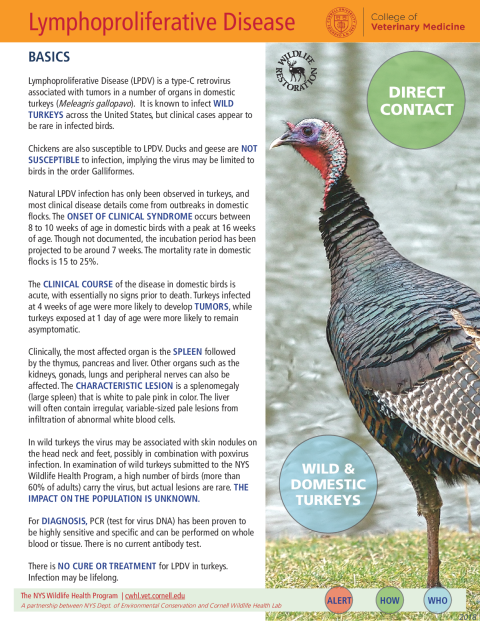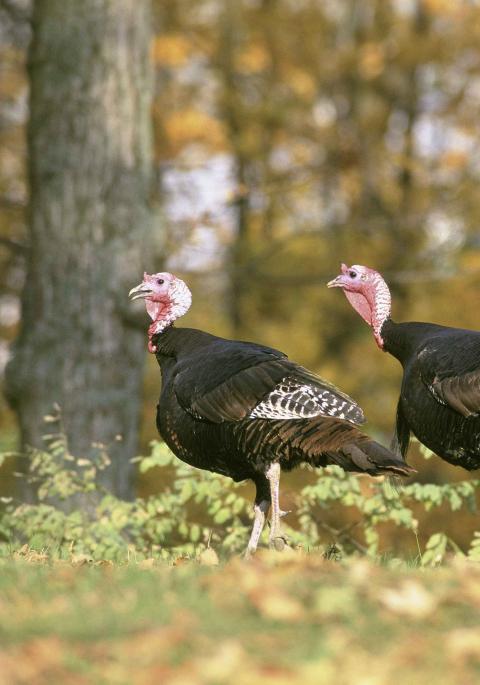Lymphoproliferative Disease (LPDV) is a type-C retrovirus associated with tumors in a number of organs in domestic turkeys (Meleagris gallopavo). It is known to infect wild turkeys across the United States, but clinical cases appear to be rare in infected birds.
Chickens are also susceptible to LPDV. Ducks and geese are not susceptible to infection, implying the virus may be limited to birds in the order Galliformes.
Natural LPDV infection has only been observed in turkeys, and most clinical disease details come from outbreaks in domestic flocks. The onset of clinical syndrome occurs between 8 to 10 weeks of age in domestic birds with a peak at 16 weeks of age. Though not documented, the incubation period has been projected to be around 7 weeks. The mortality rate in domestic flocks is 15 to 25%.
The clinical course of the disease in domestic birds is acute, with essentially no signs prior to death. Turkeys infected at 4 weeks of age were more likely to develop tumors, while turkeys exposed at 1 day of age were more likely to remain asymptomatic.
Clinically, the most affected organ is the spleen, followed by the thymus, pancreas, and liver. Other organs, such as the kidneys, gonads, lungs, and peripheral nerves, can also be affected. The characteristic lesion is a splenomegaly (large spleen) that is white to pale pink in color. The liver will often contain irregular, variable-sized pale lesions from infiltration of abnormal white blood cells.
In wild turkeys, the virus may be associated with skin nodules on the head, neck, and feet, possibly in combination with poxvirus infection. Examination of wild turkeys submitted to the NYS Wildlife Health Program, a high number of birds (more than 60% of adults) carry the virus, but actual lesions are rare. The impact on the population is unknown.
For diagnosis, PCR (test for virus DNA) has been proven to be highly sensitive and specific and can be performed on whole blood or tissue. There is no current antibody test.
There is no cure or treatment for LPDV in turkeys. Infection may be lifelong.



